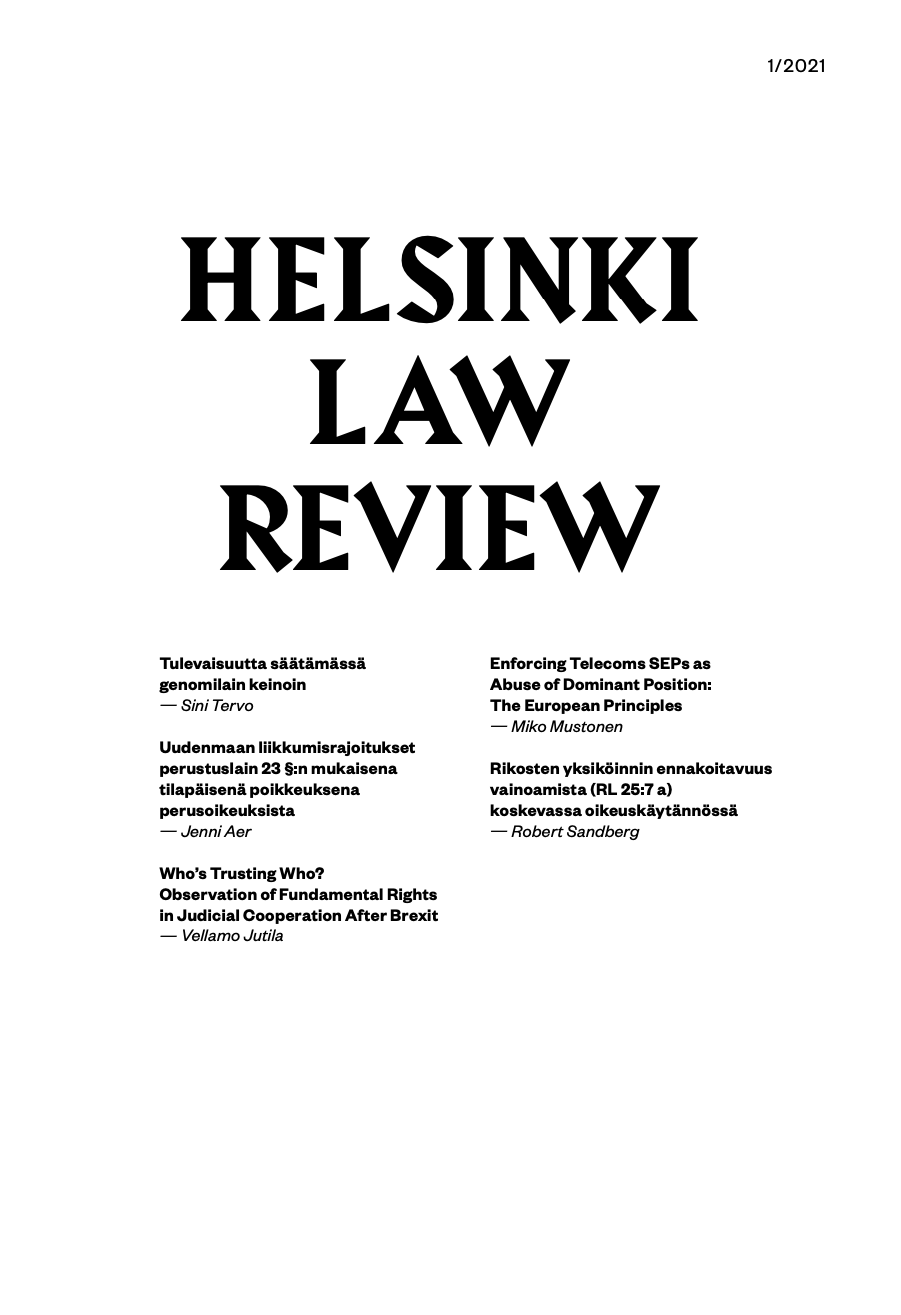Who's Trusting Who? Observation of Fundamental Rights in Judicial Cooperation After Brexit
DOI:
https://doi.org/10.33344/vol11Ypp34-46Keywords:
mutual trust, Brexit, fundamental rights, judicial cooperation, ECHRAbstract
On 1 May 2021, the EU–UK Trade and Cooperation Agreement (TCA) entered formally into force. This article asks whether mutual trust exists after Brexit and whether it plays any role in the future judicial cooperation between the EU and the UK, provided for in the newly applicable TCA. The human rights conditionality introduced by the TCA, and the new government mechanism established to enforce it, aim to ascertain continuous cooperation between the EU and the UK without additional guarantees on adequate human rights protection despite Brexit. The argument is that instead of mutual trust, the UK’s continuous adherence to the ECHR will become the guiding principle when it comes to the observation of fundamental rights in judicial cooperation. The findings indicate that in the future the ECtHR may have an increasing role in determining the required level of protection of fundamental rights.



